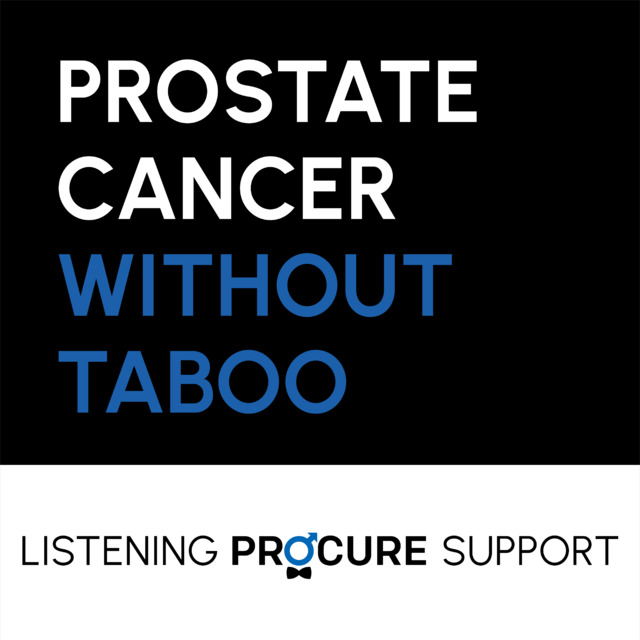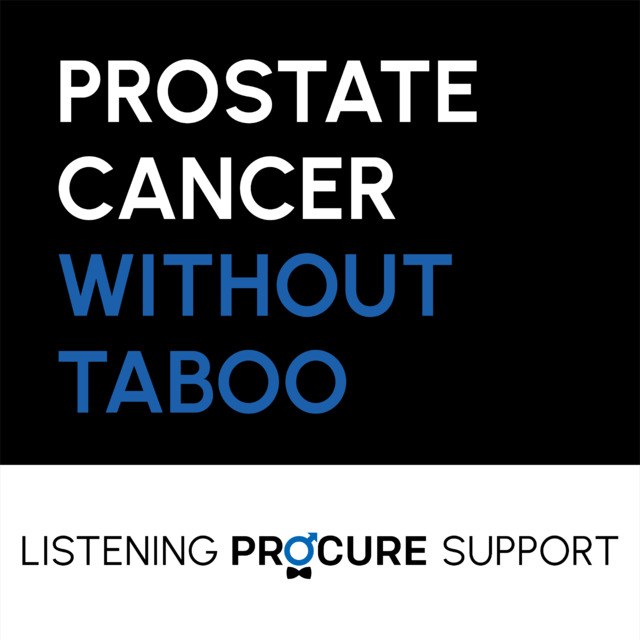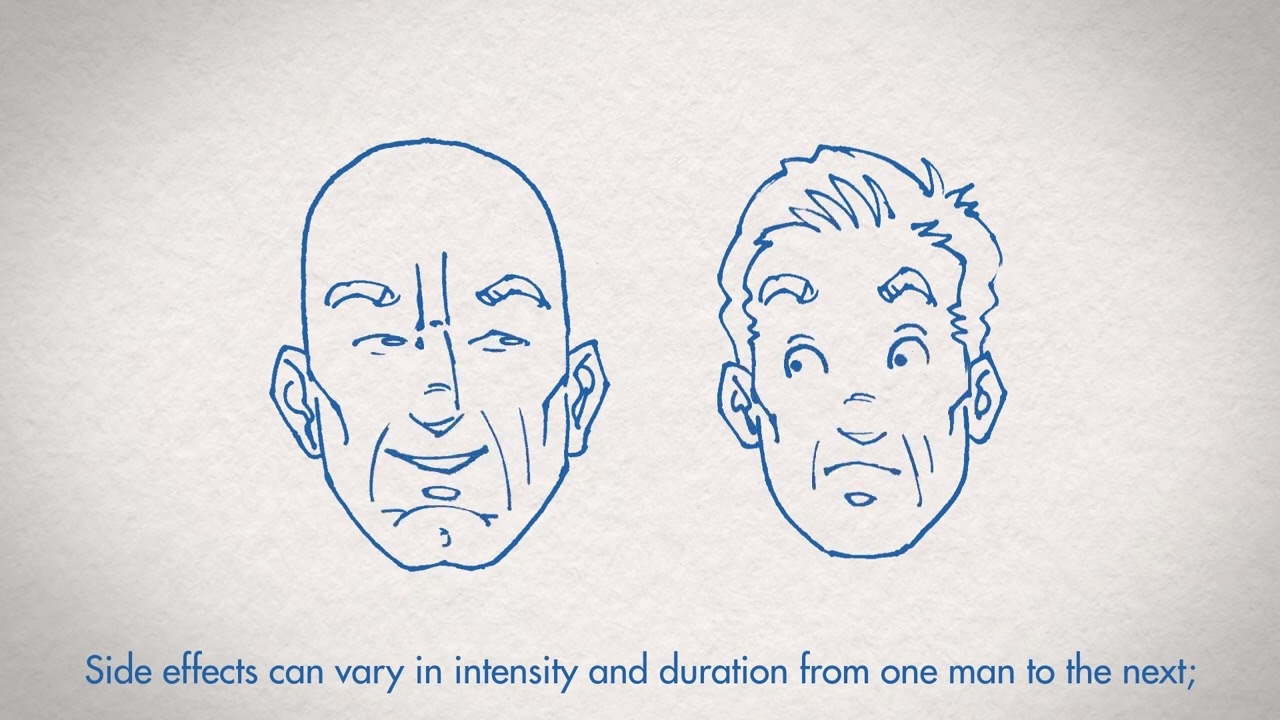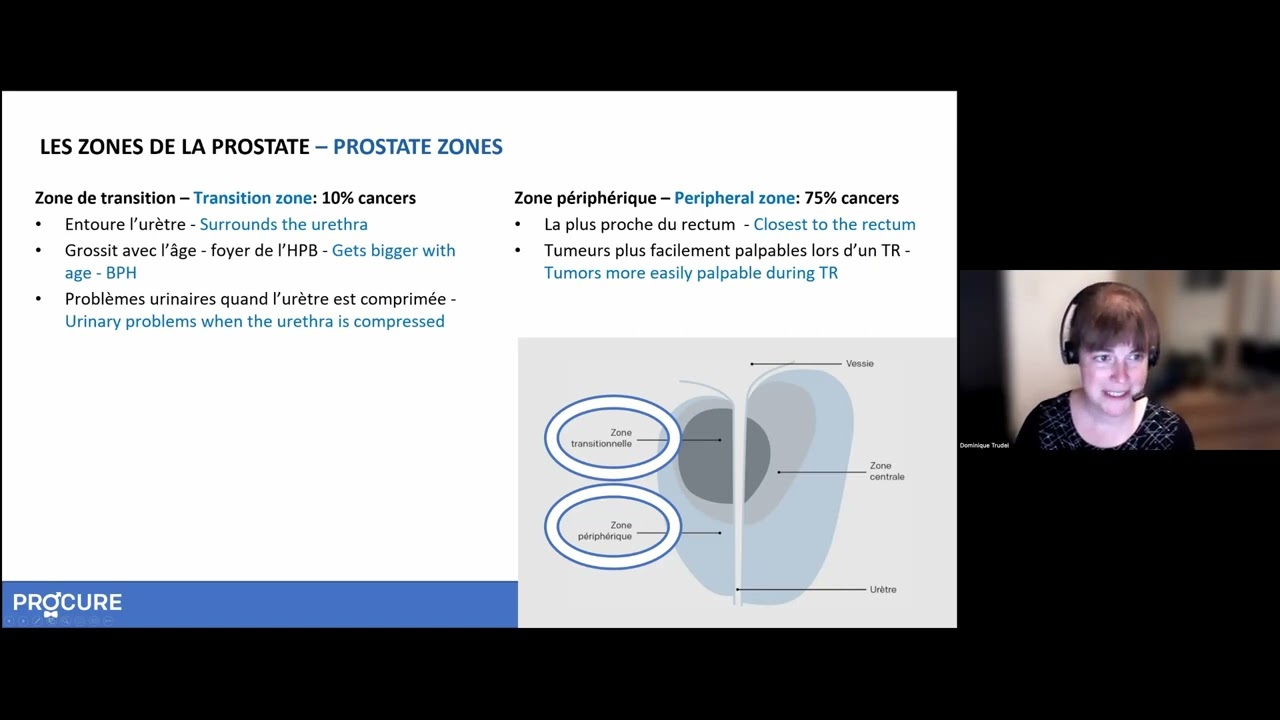Treatment by stage
- Treatment options
- Treatment by stage
- Summary of the types of prost...
- Stages
- Drugs used

Treatment by stage
After receiving your diagnosis for prostate cancer, it is natural to imagine the worst and worry about how cancer will affect your life and the lives of your loved ones. It can be difficult and stressful to have to decide on your treatment. You will most certainly have questions regarding your prognosis and may want to know what the chances are for a successful treatment.
Unfortunately, no one can tell you exactly what your outlook will be since many factors come into play: your type of prostate cancer (grade, stage, PSA rate), your age, your health status, and your medical and family history, among others.
Localized prostate cancer
- In most cases, this cancer is slow-growing and does not affect your lifespan.
- In many cases, the primary treatment will get rid of the cancer.
- In some cases, the cancer can be aggressive, evolve more quickly and spread elsewhere in the body
- In some cases, the cancer recurs after the primary treatment and other treatments become necessary.
Locally advanced prostate cancer
- In many cases, the primary treatment aims to eliminate the cancer.
- Treatment may involve a combination of therapeutic approaches.
- In some cases, the cancer recurs after the primary treatment and other treatments become necessary.
Metastatic prostate cancer
- This cancer cannot be cured.
- Hormone therapy can be effective in keeping your cancer under control for many years.
- Depending on its spread in the body, dual or triple therapy may be considered (e.g., standard hormone therapy + chemotherapy + next-generation hormone therapy)
- Developing resistance to hormone therapy calls for further treatments, often in combination
- Treatments can also relieve pain and symptoms related to metastases
Stages 1 and 2
Localized prostate cancer
The cancer is confined to the prostate only. The important thing here is to determine the risk of cancer progression (see Prognosis and survival). When it comes to localized prostate cancer, your treatment options are:
- Active surveillance
- Radical prostatectomy (surgery) with or without pelvic lymph node dissection
- Radiotherapy (external or brachytherapy) with or without short/medium/long-term hormone therapy
Stage 3
Locally advanced prostate cancer
The cancer has started to spread beyond the prostate but has not gone too far. When it comes to locally advanced prostate cancer, your treatment options are:
- Radical prostatectomy and pelvic lymph node dissection
- Radical prostatectomy with adjuvant pelvic radiotherapy (after surgery)
- External beam radiotherapy combined with hormone therapy
- External beam radiotherapy combined with brachytherapy
- Hormone therapy alone
Stage 4
Metastatic prostate cancer
The tumor has invaded neighboring organs, lymph nodes, or more distant parts of the body. When it comes to metastatic prostate cancer, your treatment options are:
- Hormone therapy +/-
- Next-generation hormone therapy
- Chemotherapy
- External beam radiotherapy to the prostate
- Other treatment combinations
- Surgery to relieve symptoms
- Treatment of bone metastases
- Clinical trials
Recurrent
With or without metastases
Recurrent cancer refers to cancer that returns after radical prostatectomy or radiotherapy. Recurrence can be biochemical only (increase in blood prostate-specific antigen (PSA) levels) or clinical (appearance of metastases on imaging). When it comes to recurrence, your treatment options are:
Without metastasis
- Surveillance only (if biochemical recurrence is slow-growing)
- Radiotherapy +/- Hormone therapy
- Post-radiotherapy brachytherapy
- Hormone therapy
With metastasis
- Hormone therapy +/-
- Next-generation hormone therapy
- Chemotherapy
- External beam radiotherapy to the prostate
- Other treatment combinations
- Surgery to relieve symptoms
- Treatment of bone metastases
- Clinical trials
Treatments can aim to cure cancer or to halt or alleviate symptoms. You may receive a single treatment or a combination of treatments according to your preferences or personal values and depending on the stage and grade of the cancer you have (in other words, according to the degree and rate of cancer spread).
Here are the medications approved by Health Canada to treat prostate cancer. We will update the information as quickly as possible when new prostate cancer medications are approved in Canada.
Medications used in hormone therapy
The most common LH-RH analogues are:
- Leuprolide (Lupron, Lupron Depot, Eligard)
- Goserelin (Zoladex)
- Buserelin (Suprefact)
- Triptorelin (Trelstar)
The LH-RH antagonists are:
- Degarelix (Firmagon)
- Relugolix (Orgovyx)
The most common anti-androgens are:
- Bicalutamide (Casodex)
- Flutamide (Euflex)
- Cyproterone acetate (Androcur)
- Nilutamide (Anandron)
New generation hormone therapy:
- Abiraterone acetate (Zytiga)
- Apalutamide (Erleada)
- Enzalutamide (Xtandi)
- Darolutamide (Nubeqa)
Medications used in chemotherapy
- Docetaxel (Taxotere)
- Cabazitaxel (Jevtana)
- Mitoxantrone (Teva)
- Prednisone or Prednisolone
Medications used to treat symptoms related to bone metastases
- Denosumab (Xgeva)
- Zoledronic acid (Zometa)
- Alendronate (Fosamax)
- Pamidronate (Aredia)
Targeted medications
- Olaparib (Lynparza)
- Niraparib/ Abiraterone acetate (Akeega)
- Radium dichloride 223 (Xofigo)
- Lutetium (177Lu) (Pluvicto)
Nuclear imaging
- 68Ga PSMA PET scan (Illuccix)
Additional Information - Treatment options

Urologist’s advice: Treatments and information on prostate cancer
Learn more about the role of the urologist and the importance for a patient to gather adequate information after receiving a prostate cancer diagnosis.

How I coped with prostate cancer
A man with prostate cancer shares the challenges of his cancer experience.

Your role as a patient
You’ve been diagnosed with prostate cancer? Your role is as important as that of your medical team.

Diagnosis and treatment
Recently diagnosed with cancer? Educate yourself to fully understand your situation.

Prostate cancer prognosis and survival
After a prostate cancer diagnosis, questions about survival, cure rates, and quality of life can arise.

Prostate cancer: Tests, imaging and biomarkers
This webinar covers various tests and exams for diagnosing and monitoring prostate cancer.

Biopsy: Understanding your report
This webinar clarifies biopsy reports, pathologists’ roles, and how results confirm or rule out prostate cancer.

Your prognosis and survival
After receiving a diagnosis of prostate cancer, you will undoubtedly have questions about your prognosis and survival and will want to know the chances of success with your treatment.

What is a genetic mutation?
Do you have a significant family history of cancer? Is there a link between prostate cancer and a genetic mutation?

Finding the right words
Prostate cancer often overwhelms patients. Finding the right words is crucial to comfort and support them.

Link between prostate cancer and obesity
If you are obese or overweight, it is more likely that prostate cancer will be diagnosed at a more advanced stage…

Prostate cancer: Is it a disease of the elderly?
It depends on the definition of old. Is being 50 years old really considered “old”?

What women should know about prostate cancer
As a woman, you might think that prostate cancer is not your concern because you don’t have a prostate. However, prostate cancer is the most common cancer in men.

I was told no to the PSA test
The PSA test should generally be offered to any man aged 50 and over with a life expectancy of at least ten years. So why this refusal?

Me a guinea pig?
Did you know that participating in a clinical trial advances medical science and improves the lot of patients for future generations?

Your role as a patient
Have you been diagnosed with prostate cancer? Your role as a patient is essential throughout your journey.
Sources and references
Last medical and editorial review: April 2024. See our web page validation committee and our collaborators by clicking here.


